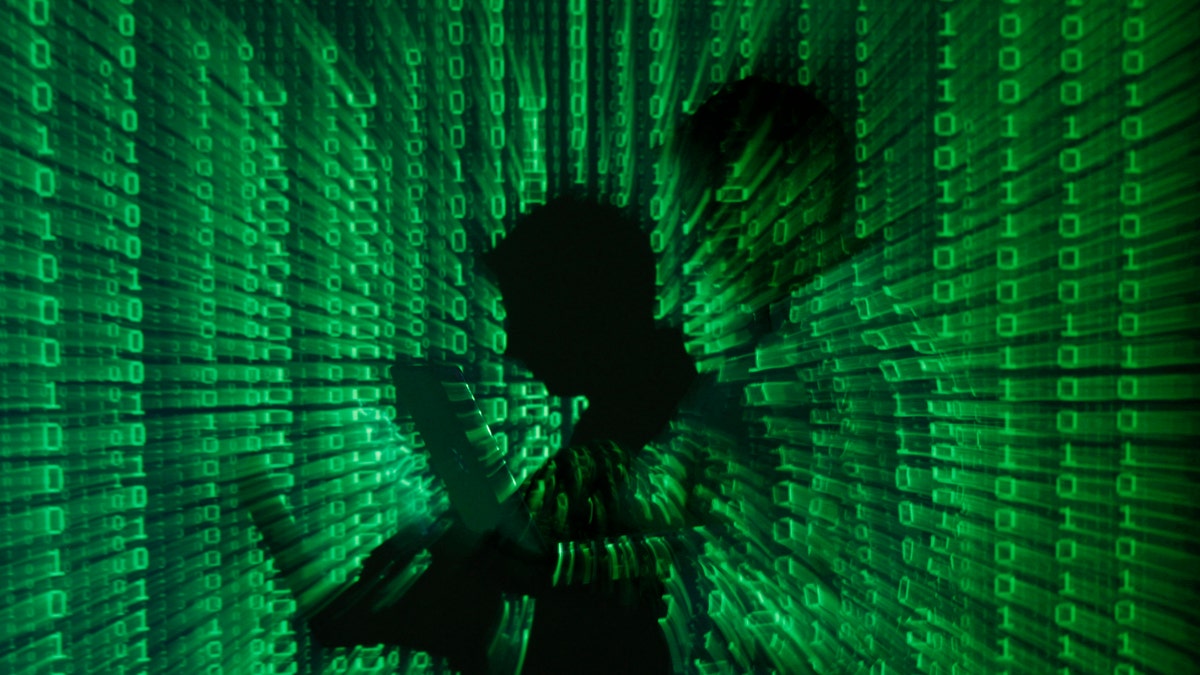
An illustration picture shows a projection of binary code on a man holding a laptop computer, in an office in Warsaw June 24, 2013. REUTERS/Kacper Pempel (POLAND - Tags: BUSINESS TELECOMS TPX IMAGES OF THE DAY) - RTX10ZB5 (REUTERS/Kacper Pempel)
As the celebrity photo scandal continues with another round of leaked images, a new survey finds that one out of every four young adults have “embarrassing photos” on their phone. That means 25 out of every 100 millennials have taken and stored nude or partially nude photos with their smartphone, even at the risk of letting the images get into the wrong hands.
Conducted by the security site MyLife.com, the survey asked 1,182 adults aged 18 to 24 if they would be embarrassed if a hacker stole the images. Just over 23% said they would. The results were higher in the Midwest, where 33% (or a third of young adults) had compromising photos. In the South, 18% of those surveyed said they had compromising photos.
According to Christian Neeser, a spokesperson for MyLife, one of the reasons has to do with how many millennials now carry phones with a built-in camera. According to a Pew Research report, the numbers have skyrocketed -- about 80% of 18 to 24-year-olds use a cameraphone.
As with any security issue, there’s always a root problem. Dave Anderson, a privacy attorney with Edwards Wildman Palmer, says young adults started storing compromising photos more often when it was not necessary to go to a photo store and retrieve printed images taken with a digital camera. A cameraphone, which often has a large screen and a high-resolution camera, makes it easier to store and view the photos. There’s an illusion of privacy.
Yet, this has created a new security nightmare. Aaron Messing, an information privacy attorney, says millennials seem to be willing to sacrifice the risk of a leaked image for the ease of communicating with one another. Another Pew Research study found that 34% of young adults have “sexted” with one another. It’s become an accepted form of flirting, says Messing.
“The best way to prevent digital nudes from proliferating online is undoubtedly not to take them, or if you do take them, to keep them to yourself,” he says. “The problem with these pictures is that they can be copied, saved and disseminated easily, unlike physical pictures.”
The problem could be more serious, however. Recently, Jennifer Lawrence--the celebrity at the center of the photo leak scandal -- said looking at her nude images should be considered a sex crime. Anderson says, depending on the age of the person in the compromising photo, there’s a chance the offended party could be held legally accountable or even charged with a crime, especially if the photo shows someone under 18 and is considered child pornography.
He says someone could more likely pursue legal action for an embarrassing selifie under a copyright infringement law than an image taken by a boyfriend or a girlfriend.
If an image is released “into the wild” -- say, posted on a website or Facebook -- it may be hard to mount a legal challenge, he says. You would typically need the name of the hacker, a way to track down the owner of a website domain, or prove the cloud storage provider is to blame.
Part of the issue is in understanding how easy it is for hackers to steal the images.
“Millennials need to understand that, in today’s world, if you post it to the Internet, send a text, or send a selfie there’s a good chance that it will last forever, and quite possibly be seen by (way) more than the people you originally sent it to,” says Anderson. “So they should think about what they are doing and really make sure that they are comfortable with it before doing it.”
